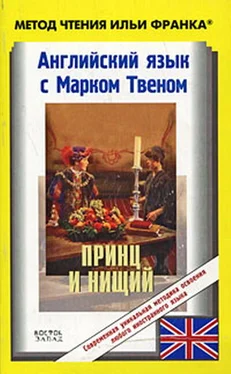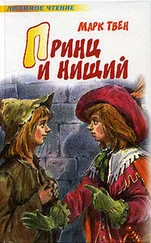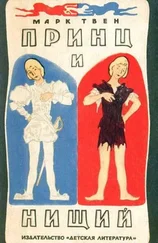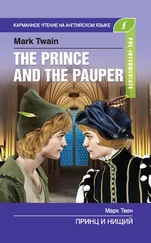peculiarly [pı`kju:lıəlı], genius [`Gı:nıəs], deliverance [dı`liv(ə)rəns]
The Ruffler sighed; the listeners sighed in sympathy; a general depression fell upon the company for a moment, for even hardened outcasts like these are not wholly dead to sentiment, but are able to feel a fleeting sense of loss and affliction at wide intervals and under peculiarly favoring circumstances — as in cases like to this, for instance, when genius and culture depart and leave no heir.
However, a deep drink all round soon restored the spirits of the mourners.
'Have any other of our friends fared hardly?' asked Hobbs.
'Some — yes. Particularly new-comers — such as small husbandmen turned shiftless and hungry upon the world because their farms were taken from them to be changed to sheep-ranges. They begged, and were whipped at the cart's tail, naked from the girdle up, till the blood ran; then set in the stocks to be pelted; they begged again, were whipped again, and deprived of an ear; they begged a third time — poor devils, what else could they do? — and were branded on the cheek with a red-hot iron, then sold for slaves; they ran away, were hunted down, and hanged. 'Tis a brief tale, and quickly told. Others of us have fared less hardly. Stand forth, Yokel, Burns, and Hodge — show your adornments!'
These stood up and stripped away some of their rags, exposing their backs, crisscrossed with ropy old welts left by the lash; one turned up his hair and showed the place where a left ear had once been; another showed a brand upon his shoulder — the letter V and a mutilated ear; the third said:
'I am Yokel, once a farmer and prosperous, with loving wife and kids — now am I somewhat different in estate and calling; and the wife and kids are gone; mayhap they are in heaven, mayhap in — in the other place — but the kindly God be thanked, they bide no more in England! My good old blameless mother strove to earn bread by nursing the sick; one of these died, the doctors knew not how, so my mother was burned for a witch, whilst my babes looked on and wailed. English law! — up, all with your cups! — now all together and with a cheer! — drink to the merciful English law that delivered her from the English hell! Thank you, mates, one and all. I begged, from house to house — I and the wife — bearing with us the hungry kids — but it was a crime to be hungry in England — so they stripped us and lashed us through three towns. Drink ye all again to the merciful English law! — for its lash drank deep of my Mary's blood and its blessed deliverance came quick. She lies there, in the potter's field, safe from all harms. And the kids- well, whilst the law lashed me from town to town, they starved. Drink lads — only a drop — a drop to the poor kids, that never did any creature harm. I begged again — begged for a crust, and got the stocks and lost an ear — see, here bides the stump; I begged again, and here is the stump of the other to keep me minded of it. And still I begged again, and was sold for a slave — here on my cheek under this stain, if I washed it off, ye might see the red S the branding iron left there! A SLAVE! Do ye understand that word! An English SLAVE! — that is he that stands before ye. I have run from my master, and when I am found — the heavy curse of heaven fall on the law of the land that hath commanded it! — shall hang!'
A ringing voice (звонкий голос) came through the murky air (прошел через сумрачный воздух):
'Thou shalt not (ты не будешь)! — and this day the end of that law is come (и в этот день конец тому закону пришел)!'
All turned (все обернулись), and saw the fantastic figure of the little king (и увидели фантастическую фигуру маленького короля; to see — видеть) approaching hurriedly (приближающегося поспешно; to hurry — спешить); as it emerged into the light and was clearly revealed (когда она = фигура вышла в свет и была ясно раскрыта = показалась), a general explosion of inquiries (общий взрыв расспросов) broke out (разразился; to break out — вспыхнуть, вырваться):
'Who is it (кто это)? What is it (что это)? Who art thou, manikin (кто ты, человечек)?'
The boy stood unconfused (мальчик стоял не смущенный; to stand — стоять) in the midst of all those surprised and questioning eyes (среди всех этих удивленных и вопрошающих глаз), and answered with princely dignity (и ответил с царственным достоинством):
'I am Edward, king of England (я Эдуард, король Английский).'
A wild burst of laughter followed (дикий взрыв смеха последовал), partly of derision (отчасти от насмешек) and partly of delight (и отчасти от восторга) in the excellence of the joke (от великолепия шутки). The king was stung (король был уязвлен; to sting — жалить). He said sharply (он сказал резко):
'Ye mannerless vagrants (вы, невоспитанные бродяги; manners — манеры), is this your recognition of the royal boon (это ли ваше признание королевского благодеяния) I have promised (которое я пообещал)?'
He said more (он сказал больше = и еще), with angry voice and excited gesture (сердитым голосом и с возбужденными жестами), but it was lost in a whirlwind of laughter (но это было потеряно = затерялось в водовороте смеха; to lose — терять; to whirl — вертеть(ся); кружить(ся); вращать(ся)) and mocking exclamations (и насмешливых восклицаний; to mock — насмехаться). 'John Hobbs' made several attempts («Джон Хоббс» сделал несколько попыток) to make himself heard (сделать себя услышанным = заставить себя услышать) above the din (поверх гомона/гула), and at last succeeded (и наконец преуспел) — saying (говоря):
'Mates (приятели), he is my son (он мой сын), a dreamer (фантазер; to dream — видеть сон; мечтать), a fool (дурак), and stark mad (и совершенно сумасшедший) — mind him not (не обращайте на него внимания) — he thinketh he is the king (он думает, что он король).'
'I am the king (я король),' said Edward, turning toward him (сказал Эдуард, поворачиваясь к нему), 'as thou shalt know to thy cost (как ты узнаешь на своей шкуре: «к твоей цене»), in good time (в надлежащее время). Thou hast confessed a murder (ты признался в убийстве) — thou shalt swing for it (ты будешь висеть = повешен за это).'
'Thou'lt betray me (ты предашь меня)! — thou (ты)? An I get my hands upon thee (если я доберусь до тебя: «положу мои руки на тебя) —'
'Tut-tut (вот еще)!' said the burly Ruffler (сказал дюжий «атаман»), interposing in time to save the king (вмешиваясь во время, чтобы спасти короля; to interpose — вставлять, помещать /между кем-либо или чем-либо/; вмешиваться), and emphasizing this service (и увеличивая эту услугу) by knocking Hobbs down with his fist (сбив Хоббса вниз = наземь своим кулаком), 'hast respect (не имеешь ли ты уважения) for neither kings nor Rufflers (ни к королям, ни к «атаманам»)? An thou insult my presence so again (если ты оскорбишь мою персону так снова), I'll hang thee up myself (я подвешу тебя сам).' Then he said to his majesty (затем он сказал Его величеству), 'Thou must make no threats against thy mates, lad (ты не должен делать никаких угроз против твоих товарищей, парень); and thou must guard thy tongue (и ты должен сдерживать твой язык) from saying evil of them elsewhere (от того чтобы говорить зло о них где-либо еще). Be king (будь королем), if it please thy mad humor (если это потакает твоему безумному чудачеству), but be not harmful in it (но не будь вредоносным в этом; harm — вред). Sink the title thou hast uttered (оставь титул, который ты произнес = не называйся королем) — 'tis treason (это измена); we be bad men (мы плохие люди), in some few trifling ways (в некоторых пустячных отношениях; way — путь, способ; trifle — мелочь, пустяк; to trifle — шутить; относиться несерьезно, не принимать всерьез), but none among us is so base (но никто из нас не настолько низок) as to be traitor to his king (чтобы быть предателем своему королю); we be loving and loyal hearts (мы — любящие и законопослушные сердца), in that regard (в этом отношении). Note if I speak truth (сейчас увидишь, правду ли я говорю). Now — all together (теперь все вместе): "Long live Edward, King of England (да здравствует Эдуард, король Англии)!"
Читать дальше
Конец ознакомительного отрывка
Купить книгу




![Марк Твен - Принц и нищий [Издание 1941 г.]](/books/148799/mark-tven-princ-i-nichij-izdanie-1941-g-thumb.webp)







